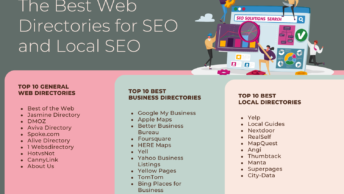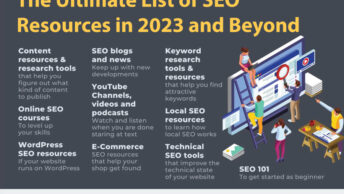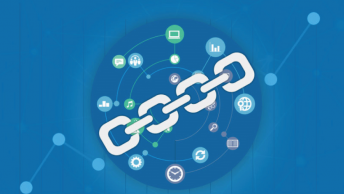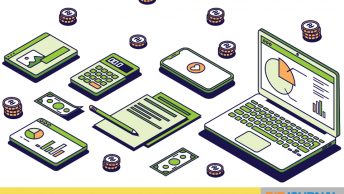
Bob E. Hayes, PhD recently wrote about the shortage of analytics talent available to analyze big data. I would counter that there is a shortage of people who truly understand analytics sufficiently to provide actionable advice.
Analytics are more likely to lead businesses astray than help them because it is far too easy to jump to unwarranted conclusions. For as long as I have known about analytics, expert Avinash Kaushik has recommended this important bit of advice:
Spend the bulk of your analytics budget on hiring someone
who can provide accurate, actionable advice.
Unfortunately, people who love numbers often think in black and white and are drawn to this type of work when what is really needed is not only strong statistical analysis skills, but also common sense to know when you’re on the wrong track.
Whether you have big data or a smaller data set, the potential for errors and invalid data – commonly referred to as “garbage in” affecting your decisions which end up being based on “garbage out” is very real. Far too many assumptions are being made about the accuracy of collected data.
On top of that you need to know your industry and what it is you are measuring. As an IBM technician I once ran into a situation where a statistician (who we in the field not so lovingly refer to as “bean counters”) decided we only needed 2 of a particular part in the entire country because we only used 24 per year. I flew one in from the west coast – it was new defective. I flew the other one in from the east coast – also new defective. No more in the entire country based on some inventory expert who thought 2 was plenty. I was put in the position of asking one major client to power down an entire string of tape drives so that another major client could run their payroll.
One error that should have been caught was that we did not use 2 per month – we used many during thunderstorm season and none the rest of the year because the part was susceptible to lightening damage. That error they should have caught. But what no analysis could have told them was that part tended to not fail completely – it often caused intermittent problems – and because of that coupled with the fact that customers frown upon us turning off ALL their tape drives to troubleshoot intermittent issues – those defective parts ended up being returned to inventory.
This is where common sense and knowledge of your field come in
and nothing – no amount of training – can substitute for having
those WITH EXPERIENCE making the decisions.
Here is a test for your “analytics expert”. If they insist that conversions are always attributed to the appropriate channel, but do not know whether first, last or all clicks are being used to determine conversion source they can not help you and will most likely hurt you.
Prove it for yourself. Find a product in any ecommerce store that has been on their Web site and in their product feeds going to shopping comparison sites and Google Base for a year, but never specifically advertised before. Create Adwords ads to advertise that product. Wait until you have at least four sales. Look at what analytics says generated those sales.
If they – or you believe that anything besides the ads you ran is
responsible for those new sales you are most likely wrong.
Remember I said choose a product has been offered in other channels and on their site for over a year and had zero sales that entire time. The new ad is far and away the most likely reason for those sales. In my experience, analytics usually attributes about 25% to AdWords and 75% to other sources, but that will vary depending on how many other channels the merchant is using.
When I managed AdWords accounts full time I often heard certified AdWords experts bragging about how much money they were saving their clients by not bidding on generic keywords that “did not convert”. What I knew that they did not was most analytics programs attribute conversions to the “last click” so here is why they were emptying their customer’s sales funnel of future sales NOT saving them money on advertising.
When people are researching a future purchase, they first search
for products using the most general and generic terms.
Let’s use faucets for example. They see your AdWords ad and visit your site. They find a brand they like. When they search again they might search for “Kohler faucets” or “Delta faucets”. That new search overwrites the original search for just “faucets”. Then they find just the perfect faucet. They now know the brand plus the model name or number they want to buy. When they search for that phrase that search overwrites the previous more generic searches.
All your analytics program knows is the buyer searched for a very specific brand, model and/or model number so your foolish “expert” stops advertising on the phrases that brought that person to your site and made them aware of your brand in the first place. Your sales WILL go down unless they manage to advertise on every brand, model, model number, color, finish, size, etc. – and probably even if they do.
If the buyer never saw your general ad they would not have visited your site, most likely would not remember you to come back, and your brand would have little brand recognition so each buyer is far less likely to click on your listings – organic or paid.
By not bidding on the general phrases that most apply
to your business your sales funnel goes empty!
Because that takes 10-14 days for most businesses, the “expert” never connects sales dropping a week or two later to them turning off those specific ads. I assure you that even for what you would think were inexpensive, impulse purchases there is a lag between first ads and consistent sales so common sense tells me that same lag will exist for turning ads off on those same types of products.
The lag between first visit and purchase is 10-14 days for impulse buys and
inexpensive products and can be much longer for more expensive ones.
Many people shop between pay days and buy when they get paid or when they make their next credit card payment on the card they want to use. That is true even for items under $10 so don’t assume that doesn’t apply to your business.
There is a large demand for top analytics people. If you have common sense and want to learn this specialty, there are exceptional training programs available. This video by the best known analytics expert Avinash Kaushik explains:
BUSINESS ANALYSIS
Do you need analytics and other computer algorithmic related talent? Check out these DIRJournal listing categories. If your company provides analytics services or training, discover the benefits of listing your business in the DIRJournal directory.







